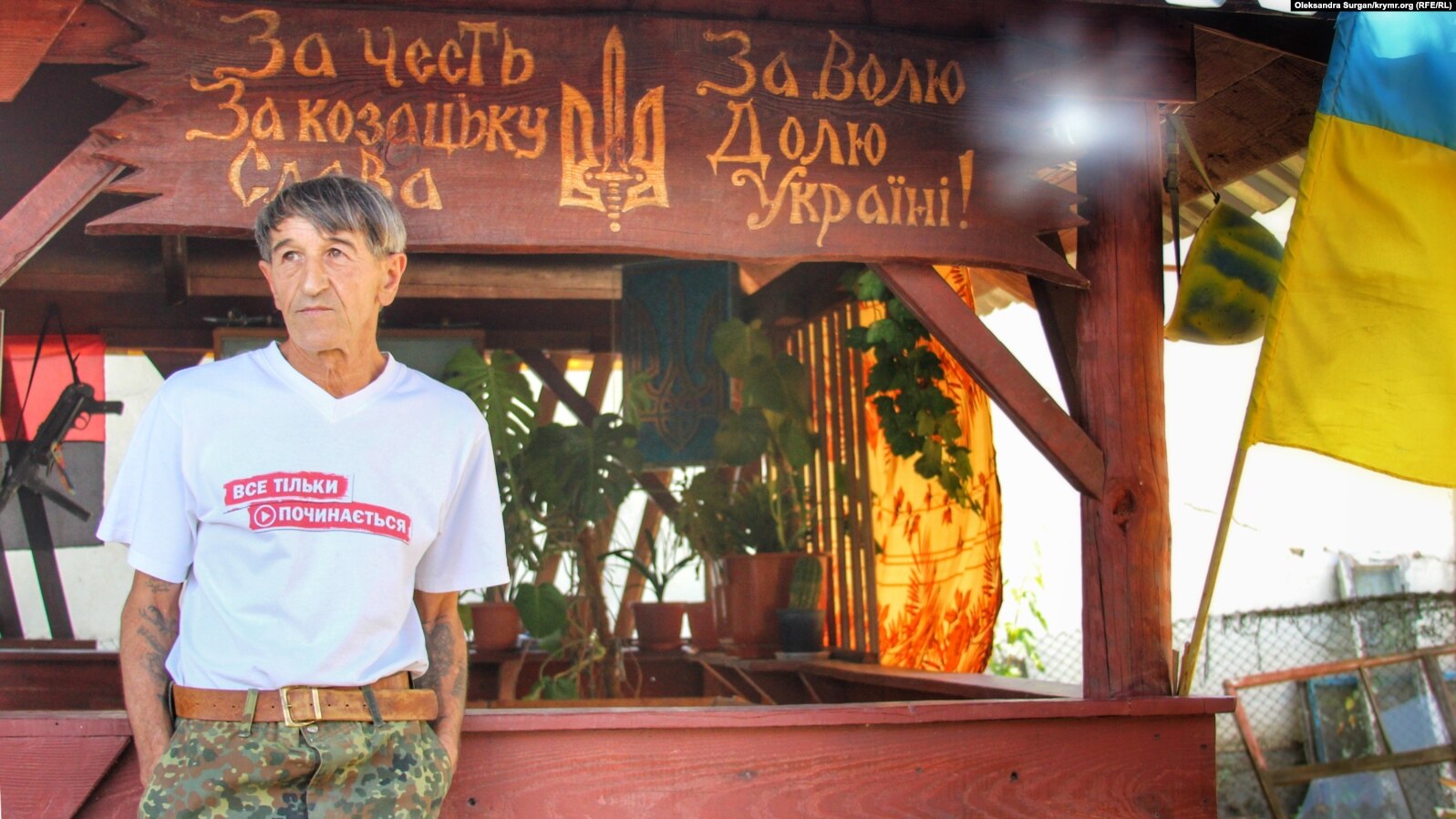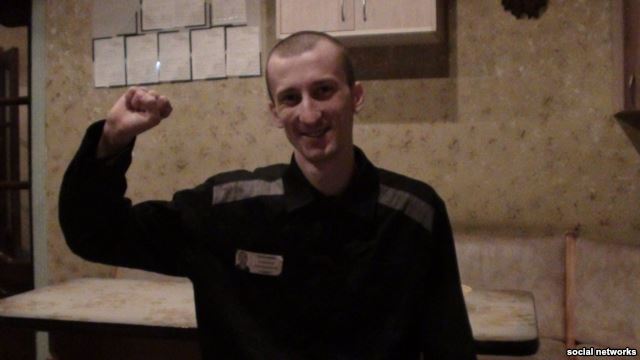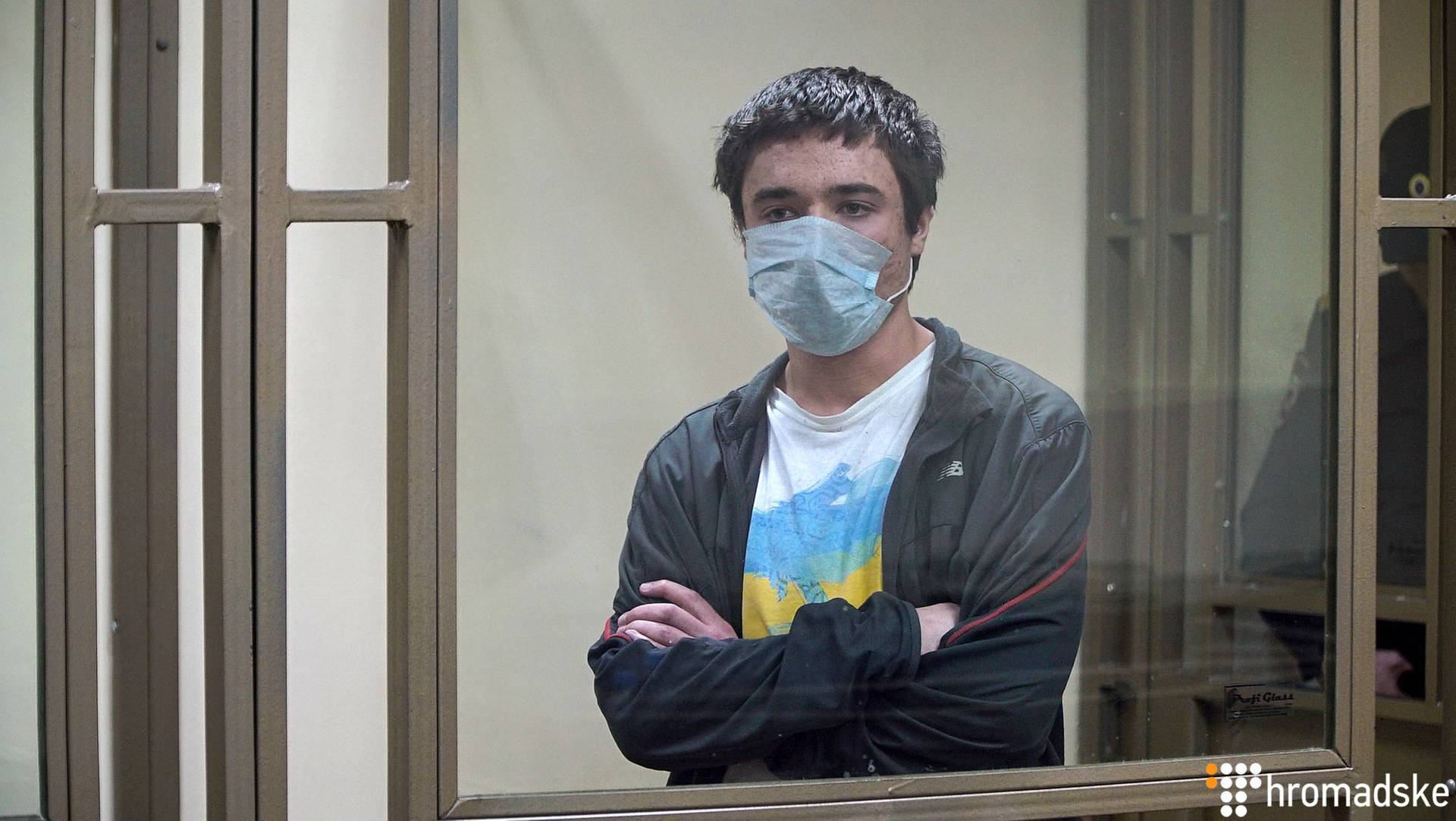The “spies” and the “terrorists”
In late March this year, the Military Court in the city of Rostov-on-Don sentenced Oleg Prykhodko, a 63-year-old Ukrainian living in Crimea, to 5 years in a high-security prison. The authorities stated to have found illegal explosives, as well as Ukrainian nationalist symbols at his home. The verdict stated Prykhodko is an extremist who was preparing terrorist attacks in Lviv and Saki, while FSB branded him a Nazi.
During his trial, Prykhodko pleaded not guilty, stating he is an ordinary man who, nevertheless, openly opposed the occupation of Crimea. As his defense attorney demonstrated, the evidence against him was dubious at best. One of the chief findings against him were the explosives "discovered" by the FSB officers in his own garage.
Another piece of condemning evidence was a phone found in his house. According to the prosecutor, Prykhodko used it to communicate with an unidentified person in Lviv in preparation for a terrorist attack. The accused and his wife denied ever seeing the phone before FSB's "discovery."
Most importantly, however, the experts called in by the defense stated that the mysterious person did not call from Lviv, but from somewhere in Kherson oblast near the Crimean border - meaning that the call could have easily been made by the Russian security services. The phone itself has even been registered under another name.
However, the investigators deemed it unimportant to uncover the identity of the mysterious co-conspirator or the name under which was the phone registered.
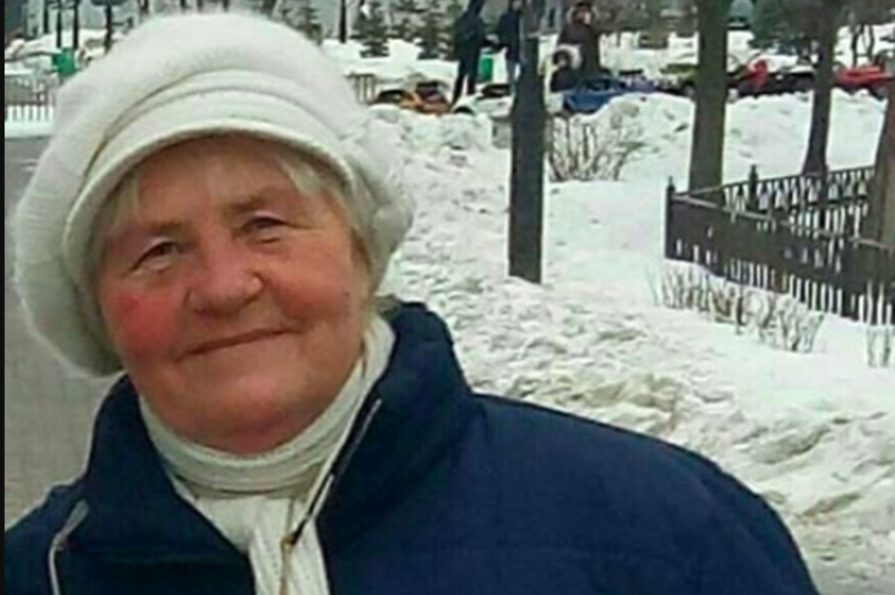
This case is far from unique in recent months. Also in March, a 64-year-old pensioner was sentenced to 12 years in prison for spying for Ukraine. Lyudmyla Denisova, the Ukrainian human rights ombudsman for the Ukrainian parliament, identified her as Halyna Dovhopola and stated the case has been fabricated.
Yet another case revolves around Vladyslav Yesypenko
, a Ukrainian journalist working with Krym.Realii (a project of Radio Free Europe), who was arrested in Crimea for alleged espionage on 10 March. Instead of assigning him with an independent defense attorney, the Crimean occupation authorities tasked Violetta Sinyeglazova with Yesypenko’s defense. This lawyer has previously worked on similar cases and her “defense” strategy usually involved convincing her defendants to confess.
This March, the Russian propaganda channel Krym 24 aired a bizarre interview with Yesypenko. In the few opening minutes, the stuttering journalist confessed to stashing explosives in his car, which he reportedly received from the Ukrainian special services.
For the rest of the interview, he admits to “preparing materials” on topics like elections, local people, or the state of a water reservoir, while the interviewer repeatedly steers the conversation back to his alleged connection to the Ukrainian intelligence, spinning common journalist work into acts of espionage. Many of Yesypenko’s confessions – always promptly stirred by the interviewer – make little sense. For example, he states that he sent copies of his material to the Ukrainian intelligence. That is, of the same material that he meant to openly publish. The question of why would the Ukrainian security services need copies of publicly available content remains unposed.

Yesypenko’s family and the Crimean Human Rights Group suggest that during his detainment he was subjected to torture, drugs, and sleep deprivation. The journalist is indeed under visible duress during the interview. Nevertheless, the current story in the Russian media is about a Ukrainian journalist spying for Ukraine and for the “American” (with emphasis) Radio Free Europe, while in possession of explosives.
And just as these sentences are handed out, new cases are being opened: in April, the FSB arrested a Russian national in the Altai Region for plotting a terrorist attack, reportedly under the instructions of the Ukrainian nationalist group “Ethnic National Association.” More arrests of similar nature have been made one month earlier in Gelendzhik and in Crimea.
The nature of the charges revolved around Ukrainian nationalism, connection to the Ukrainian secret services, and planning of terrorist attacks. Though the cases are still fresh and relatively little reliable information is available so far, the nature of the charges makes a clear statement: Ukrainian intelligence services are using extremists for sabotage and terror attacks against the Russian people.
A simple explanation would be that FSB officers are simply fabricating these cases to advance their personal careers and to strengthen the power and importance of their organization. According to an article by Novaya Gazeta, FSB has a record of inflating its role in fighting terrorism, often reporting cases that cannot be independently verified and featuring numerous discrepancies.
Targeting anti-government activists and rebranding them as violent extremists is also nothing unusual in FSB's repertoire, as the case of the Russian activist group New Greatness illustrates. Without any solid evidence, a group of peaceful activists have received up to 7 years in prison.
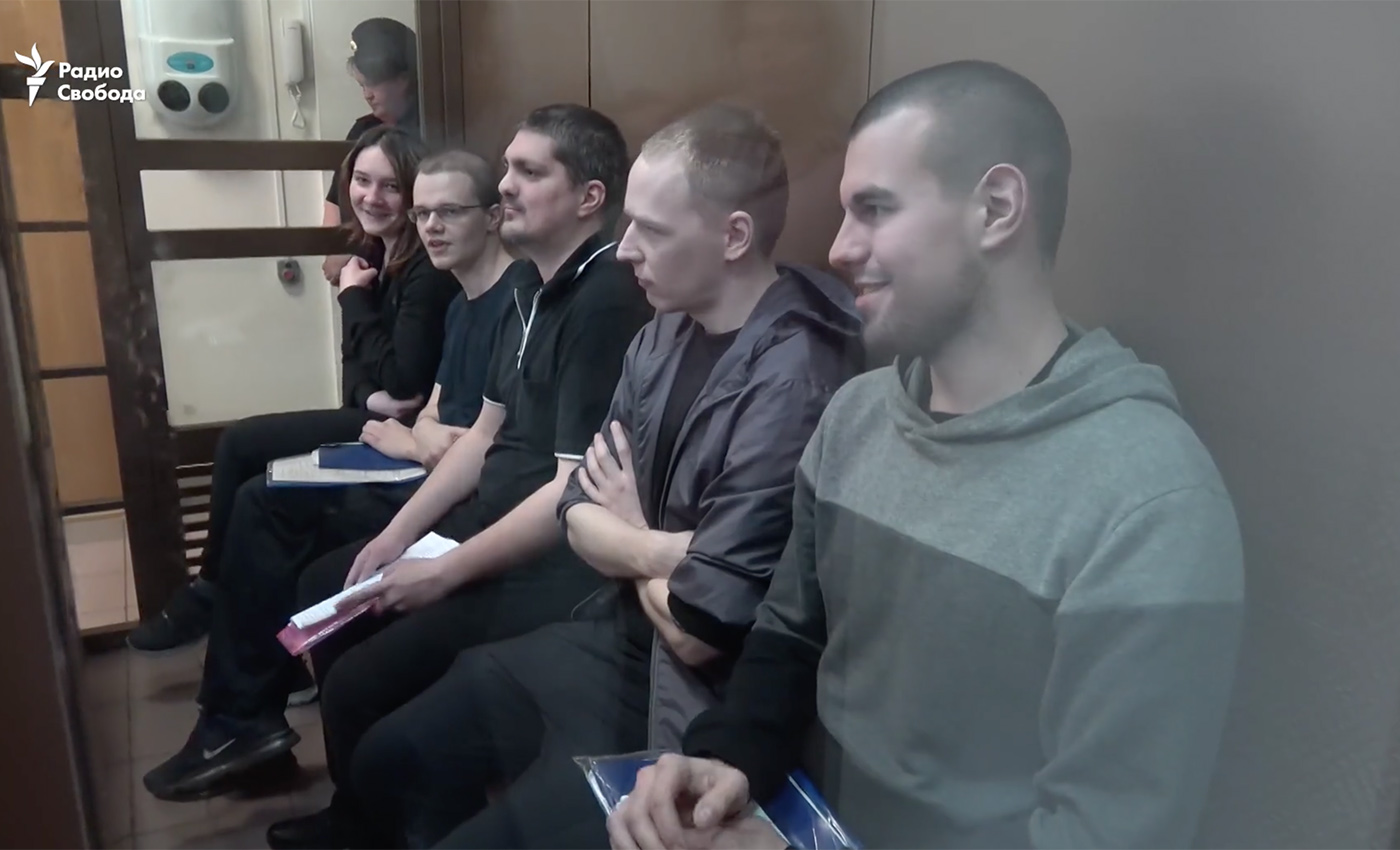
As was later discovered, the one member who was the leading force behind the formation of the group was actually an FSB agent.
A prelude to an escalation?
There is another, more ominous perspective, however. Petro Burkovskiy from Detektor Media sees these events as a part of a larger plan and puts
the wave of arrests into the context of the recent Russian military build-up near the Ukrainian borders. According to him, the medialization of these cases is meant to provide justification, both domestic and international, for stepping up its game with Ukraine.
This would fit the Kremlin's information warfare strategy quite well. According to the Finnish specialist Irina Grigor, propaganda in Russian state media does not have the goal of persuading its audience -- as many still lack access to any alternative source of information -- but rather of mobilizing it for a certain goal.
So-called "strategic" and "policy" narratives are constructed to put the government's policies and decisions into a value-based context, for instance, to "explain" to the audience who is the enemy and why actions have to be taken against them.
In the current situation, this would mean that the wave of arrests has been instigated to fabricate a threat of Ukrainian terrorism, and the danger will not recede until decisive - military, if need be - action is taken against it.
Indeed, two of the major Putin's military adventures -- the Second Chechen War and the intervention in Syria -- have been presented as campaigns to stamp out terrorism. The Chechen campaign has been accompanied by tight media control, always emphasizing the insurgents' terror attacks in order to rally the population behind the operation.
In comparison, fighting another country naturally leads to death and suffering civilians, sacrificed to geopolitics. Similarly, the term "war" implies a much larger scale and deeper consequences than a "counter-terrorist operation." If Russia chooses to move militarily against Ukraine, it is likely that this is how it will justify the invasion.
Of course, the image of a dangerous Ukraine has long been built. Since 2013, Moscow's narrative towards Ukraine has undergone a transformation: a "little brother" in need of rescue from dangerous extremism has become the dangerous extremist. We have already delved into how the Russian propaganda uses historical experience to demonize Ukrainian nationalism, equating it with Nazism and fascism. Now, present-day "evidence" is created to strengthen the narrative and present it as an imminent threat to Russian citizens.

A number of cases have been opened against Crimean Tatars, often those with anti-Kremlin stances, once again on charges of extremism and preparing terrorist attacks. Even acts like honoring the victims of the Tatar deportation under Stalin are met with harassment from the authorities, who label praying in mosques as "extremism."
In the name of combatting terrorism, severe prison sentences are handed out, again based on scant and questionable evidence. The nature of the sentences usually involves association with Hizb ut-Tahrir, an Islamic organization criminalized as a terrorist group in Russia, even though it has not been linked to any actual terrorist activity.
An old textbook rule for authoritarians says: when you have troubles home, divert attention elsewhere.
Still, we have seen that the lack of evidence is no obstacle for FSB to build a successful case and to construct another terrorist threat. And if we take into account the fact that many of Hizb ut-Tahrir Crimean Tatar members emigrated to Ukraine, where the organization operates legally, it is not difficult to deduce where the source of this threat will point to once again.
An old textbook rule for authoritarians says: when you have troubles home, divert attention elsewhere. Moscow in particular likes to employ this approach. And we can indeed observe an effort to construct a certain narrative, depicting Ukraine as a direct threat to Russian citizens.
Still, stating purely based on this that a military invasion is imminent also means ignoring alternative, equally plausible explanations.
Some experts propose this is simply a show of force to create pressure on Zelenskyy or the West. After all, this information campaign prelude might not be a prelude after all, but a means by itself. A means to divert the attention of the Russian population from Navalny, from the pandemic, from the upcoming Duma elections, and to remind them once again who keeps them safe from the "real threat."
In the end, however, no matter the grander scheme, in one aspect there is no difference: real people are becoming the victims of these machinations.

Read also:
- Crimean Tatars in the crosshairs of Russia’s war on Muslims
- The quiet front: the battle of identities in occupied Crimea and Donbas

